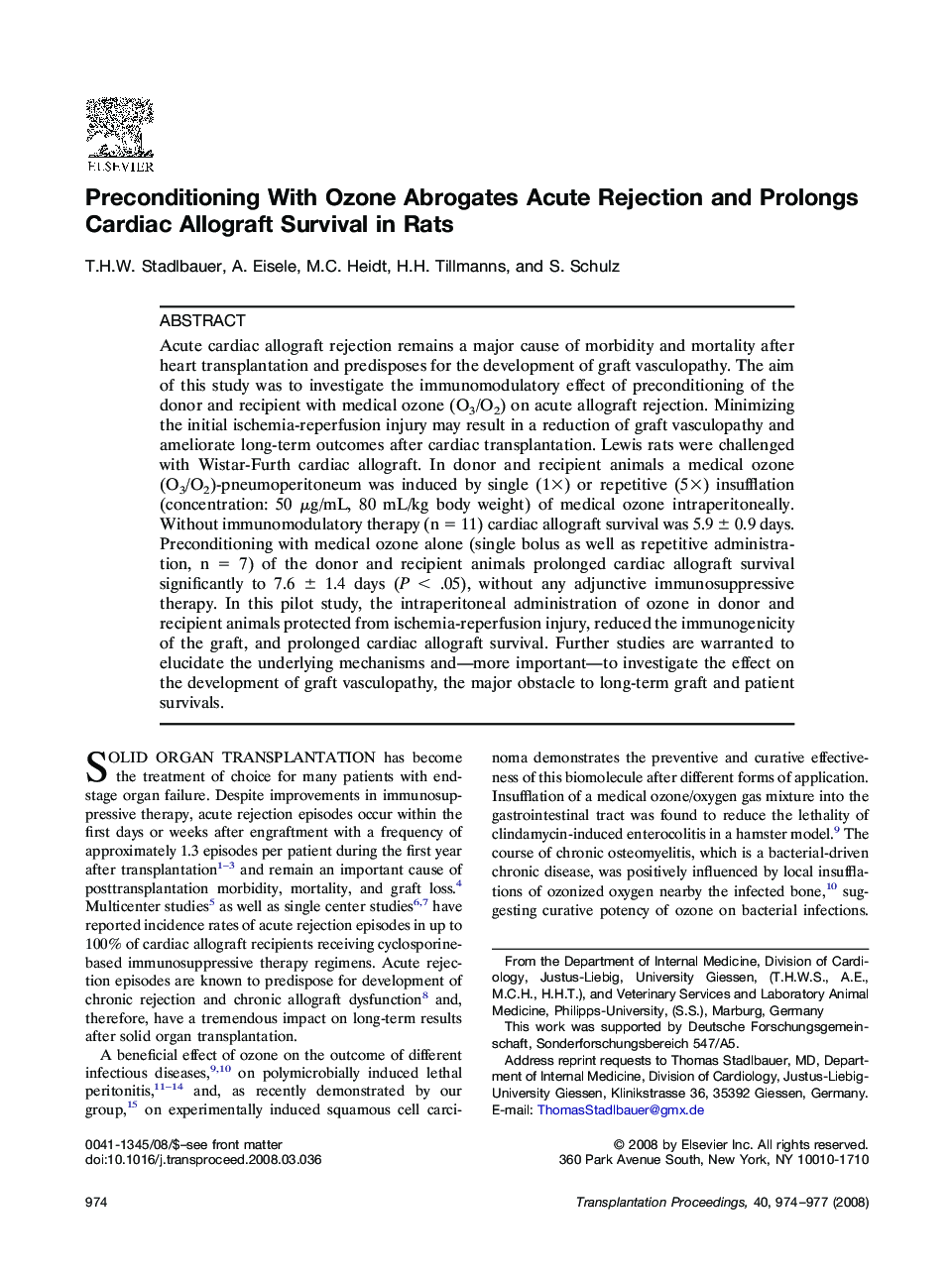| Article ID | Journal | Published Year | Pages | File Type |
|---|---|---|---|---|
| 4262085 | Transplantation Proceedings | 2008 | 4 Pages |
Acute cardiac allograft rejection remains a major cause of morbidity and mortality after heart transplantation and predisposes for the development of graft vasculopathy. The aim of this study was to investigate the immunomodulatory effect of preconditioning of the donor and recipient with medical ozone (O3/O2) on acute allograft rejection. Minimizing the initial ischemia-reperfusion injury may result in a reduction of graft vasculopathy and ameliorate long-term outcomes after cardiac transplantation. Lewis rats were challenged with Wistar-Furth cardiac allograft. In donor and recipient animals a medical ozone (O3/O2)-pneumoperitoneum was induced by single (1×) or repetitive (5×) insufflation (concentration: 50 μg/mL, 80 mL/kg body weight) of medical ozone intraperitoneally. Without immunomodulatory therapy (n = 11) cardiac allograft survival was 5.9 ± 0.9 days. Preconditioning with medical ozone alone (single bolus as well as repetitive administration, n = 7) of the donor and recipient animals prolonged cardiac allograft survival significantly to 7.6 ± 1.4 days (P < .05), without any adjunctive immunosuppressive therapy. In this pilot study, the intraperitoneal administration of ozone in donor and recipient animals protected from ischemia-reperfusion injury, reduced the immunogenicity of the graft, and prolonged cardiac allograft survival. Further studies are warranted to elucidate the underlying mechanisms and—more important—to investigate the effect on the development of graft vasculopathy, the major obstacle to long-term graft and patient survivals.
